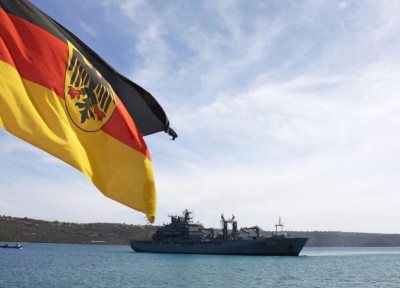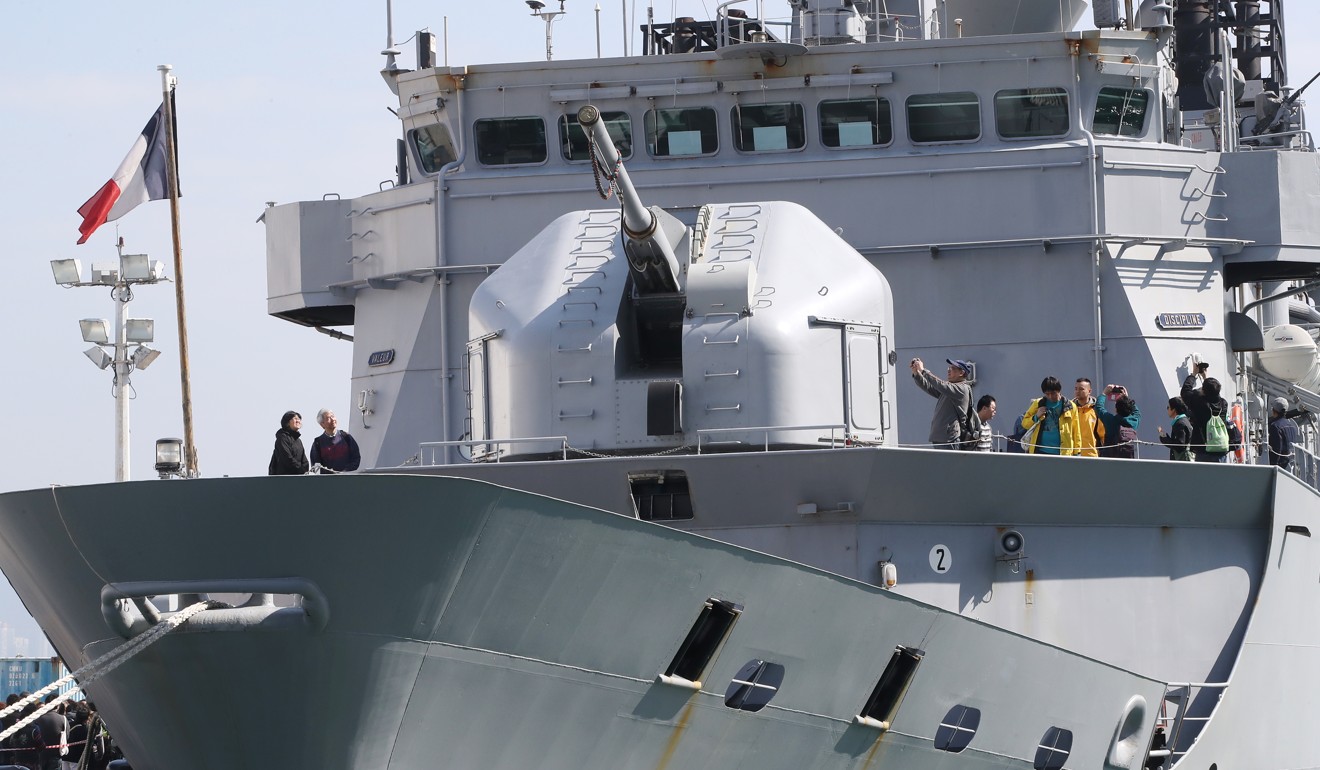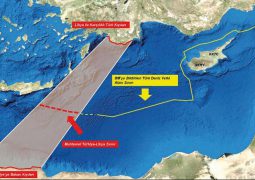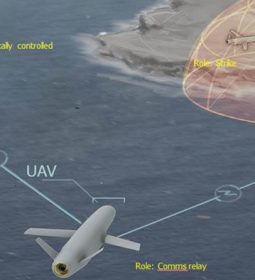European Navy patrols disputed Southeast Asian waters

China’s new abnormal: European patrols in disputed Southeast Asian waters
- Richard Heydarian writes that Germany’s entry into the fray leaves China once again surrounded by Western naval powers, an echo of the dark days of the Opium Wars
Reflecting on the consequences of China’s rapidly growing military capabilities and footprint in adjacent waters, the grand strategist Edward Luttwak argued that the formation of an informal counter-alliance was almost inevitable.
We will witness, Luttwak predicted in his 2012 book, The Rise of China vs. the Logic of Strategy , “a general realignment of forces against [China], as former allies retreat into a watchful neutrality, former neutrals become adversaries, and adversaries old and new coalesce in formal or informal alliances against the excessively risen power”.
The likely entry of Germany, Europe’s industrial powerhouse, into the East Asian maritime disputes potently reflects this burgeoning strategic dynamic.
China is no longer just facing resistance from the United States, but also transatlantic allies with growing strategic interests in the Indo-Pacific. Echoing the dark days of Opium Wars, China is once again surrounded by Western naval powers.


Germany, however, will be only the latest European power to enter the fray. In the past two years, Britain and France, both with postcolonial territorial possessions in the Indo-Pacific, have stepped up their naval presence in China’s adjacent waters.
In April, Paris enraged Beijing by deploying the French frigate Vendemiaire to the Taiwan Strait.
In response, Beijing disinvited the French delegation from taking part in the international naval parade marking the 70th anniversary of the founding of China’s People’s Liberation Army Navy.
Beijing made “stern representations” to Paris for the alleged “illegal” passage of the French warship through Chinese-claimed waters.
The Chinese defence ministry went so far as to warn France that the PLA Navy, which shadowed the French frigate, “will stay alert to firmly safeguard China’s sovereignty and security”.
The French maintained that the manoeuvre was lawful and a legitimate part of broader efforts to preserve freedom of navigation in the area amid rising maritime tensions.
Berlin’s decision to deploy warships to the South China Sea and Taiwan Strait is likely to only add insult to injury. China, however, will have to once again grapple with European powers’ growing military presence in its adjacent waters.
Just months earlier, the British provoked China’s ire by conducting the first-ever days-long joint naval exercises with the United States in the South China Sea.
The British navy claimed that the exercises were “contributing to promoting regional security and prosperity”.
Just weeks earlier, the British conducted joint trilateral anti-submarine warfare exercises, along with the US Navy and the Japanese Maritime Self Defense Force, close to the Chinese-occupied Paracel Islands.
To Beijing’s further chagrin, London also announced its plans to deploy the Queen Elizabeth aircraft carrier, accompanied by two squadrons of F-35B Lightning II joint strike fighters, to the South China Sea in the coming years.
In addition, the French and British both have stepped up their own versions of “freedom of navigation” operations in the area, while deepening defence ties with other US allies, particularly Japan, India and Australia.
The upshot is a de facto squad of like-minded Indo-Pacific powers, which are deepening their military interoperability, intelligence sharing and strategic coordination amid shared concerns over China’s expanding footprint in adjacent waters.
According to a June 5 report by Politico magazine, now even Germany is set to enter the theatre, lending its liminal, yet formidable, naval prowess to the ad hoc coalition checking China’s maritime assertiveness in the Western Pacific.
In a major break from its broadly low-key position on regional disputes, Berlin may soon deploy warships to the Taiwan Strait amid rising tensions between Beijing, Taipei and Washington.

This development is remarkable for three reasons. First, it stands in stark contrast to the country’s post-war aloofness to overseas military operations and flashpoints.
After all, Germany stubbornly shunned Western coalition military operations against the Gadhafi regime in 2011 and, a few years later, against Islamic State elements in Iraq and Syria.
In post-war Afghanistan, Germany only deployed a minimal peacekeeping presence under severe operational restrictions, leaving the Americans and Britons to do much of the fighting against Taliban forces.
Second, unlike France and Britain, Germany has no direct territorial and maritime interests in the Indo-Pacific.

As a senior member of the German Budestag’s Committee on Foreign Affairs told the author, Russia remains the country’s “primary geopolitical concern”.
Under the so-called Ostpolitik doctrine, Berlin’s eastward strategic orientation is largely focused on the post-Soviet space and Europe’s borders with Russia.
Finally, among European powers, Germany is the most economically interdependent with China.
The depth of bilateral economic relations explains regular joint cabinet meetings between Berlin and Beijing as well as German companies’ commitment to hold their investment ground in China amid the Sino-American trade wars.

Last year, bilateral trade stood at a whopping US$225.7 billion, with China standing as a major importer of German technology and machinery. Nonetheless, Germany has taken an increasingly vocal stance on East Asian disputes in recent years.
In 2015, during her high-profile visit to Beijing, German Chancellor Angela Merkel openly declared that the “territorial dispute in the South China Sea” was a “serious conflict”.
She even went so far as to express how she was “always a bit surprised why in this case multinational courts should not be an option for a solution”, even if China vehemently opposed the Philippines’ decision to take the regional disagreement to an arbitral tribunal at The Hague.
Merkel also clarified that Germany had an interest in making sure the sea trade routes stayed “free and safe”, because they were “important for [us] all.”
And in a classic exercise of diplomatic faux pas, she handed the Chinese leadership an early 18th century map, which portrayed both the South China Sea and Taiwan as outside Beijing’s jurisdiction.
Berlin’s decision to deploy warships to the South China Sea and Taiwan Strait is likely to only add insult to injury. China, however, will have to once again grapple with European powers’ growing military presence in its adjacent waters.
This is now the new abnormal.
Richard Heydarian is a Manila-based academic and author
- Previous U.S. targets Russian firm for allegedly helping North Korea evade sanctions
- Next North Korea shines on a show for Chinese President Xi Jinping’s state visit















